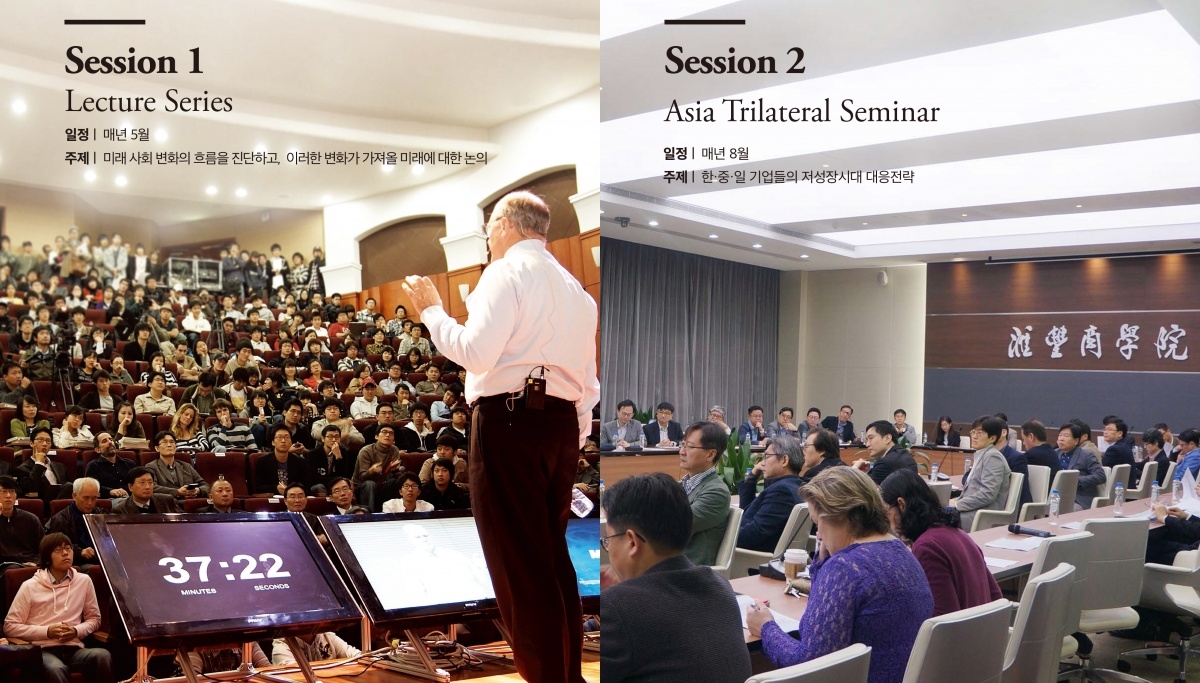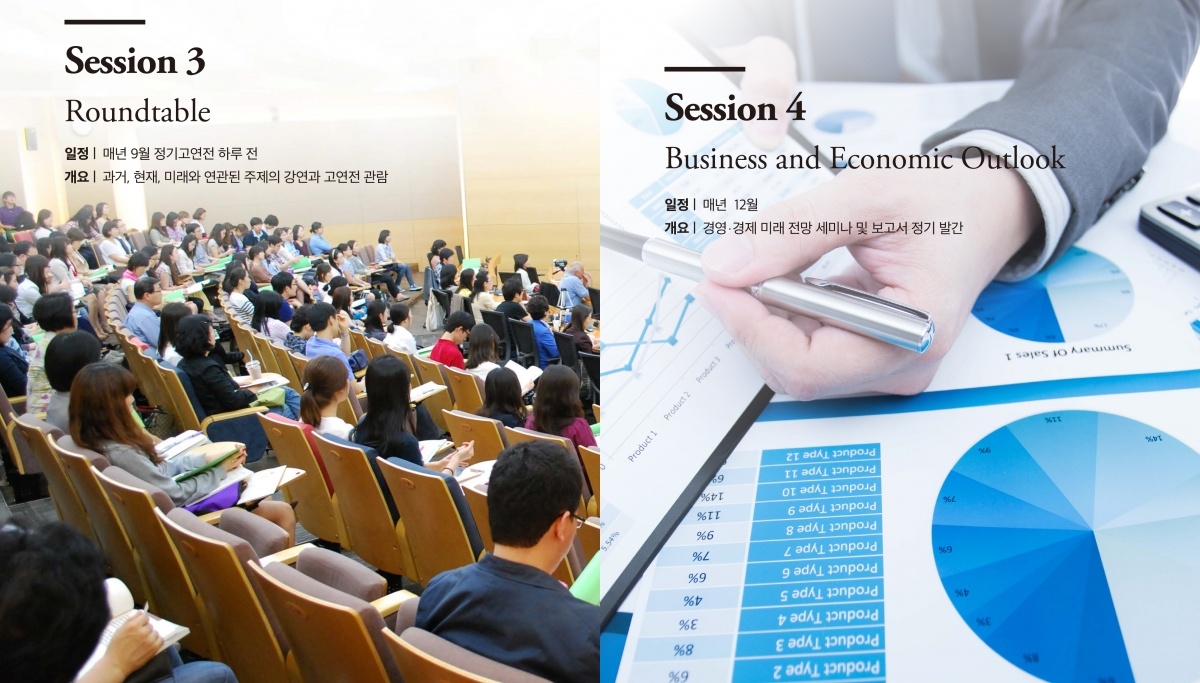뉴스
KUBS 소식
“All Robots Fall Down; Do Not Fear Failure and Keep Challenging Yourself” – Special Lecture by Dr. D
2017.05.25 Views 4386 경영대학
“KUBS Futurum – Lecture Series” Launched…Dr. Dennis Hong Invited
“All Robots Fall Down; Do Not Fear Failure and Keep Challenging Yourself”
“All Robots Fall Down; Do Not Fear Failure and Keep Challenging Yourself”
On May 22 at 4:00 p.m., Korea University Business School (KUBS, Dean= Professor Soo Young Kwon) hosted a special lecture featuring Dr. Dennis Hong, a professor at the University of California Los Angeles (UCLA), at SUPEX Hall in LG-POSCO Building as part of the “KUBS Futurum – Lecture Series.” Dr. Hong is world-famous robotics scholar known for developing a self-driving vehicle for the visually impaired and for awarding the Brilliant 10 by Popular Science in 2009. Around 250 people attended and heated up the lecture.
“The KUBS Futurum is our effort to take steps into the future,” said KUBS Dean Soo Young Kwon during his welcoming remarks delivered prior to the special lecture. “I hope this lecture will allow KUBS to successfully prepare for the fourth industrial revolution.”
Dr. Dennis Hong gave a lecture titled “All Robots Fall Down” for two hours. He began his lecture by saying, “Why must robots look like humans?” A humanoid robot is a robot that resembles a human. As the human body is incredibly complex, it is difficult to make robots walk on two legs like humans. Despite an intricate system of the human body, researchers are obsessed with creating humanoid robots that live together with people. To be used in daily life, robots must be in human form. Stairs and doorknobs are designed suitable for the human body to use. If robots do not have the shape of a human body, they may not be capable of use or access to tools for everyday life.
Dr. Dennis Hong developed a robot called DARwIn and participated in the RoboCup. The competition, also known as Robot World Cup, is the world championship series for robots playing soccer from all over the world. Its mission is to field a team of robots capable of winning against the human soccer World Cup championship by 2050. “In DARWIN’s first RoboCup, it failed to kick a ball but instead hit a soccer-playing robot from the opposing team,” Dr. Hong said. “Even though we were disappointed about the results, when we saw the RoboCup trophy, we promised to win the championship next time.” After many trials and failed attempts on robot development, Dr. Hong finally won the championship.
He then began his challenge of developing robots helping people. Dr. Dennis Hong, who believed the previous robots were too expensive and thus were inappropriate for education, developed “DARwIn-RoMeLa” and made his manuals for fabrication and assembly available online for free. People tried to persuade him not to give away his hard work, but it was no use. “Every time I am at a moment of choice, the reasons for starting this research crossed my mind,” he said. “Since I developed robots for both research and education, it is right to open up my technology for free.”
He then began his challenge of developing robots helping people. Dr. Dennis Hong, who believed the previous robots were too expensive and thus were inappropriate for education, developed “DARwIn-RoMeLa” and made his manuals for fabrication and assembly available online for free. People tried to persuade him not to give away his hard work, but it was no use. “Every time I am at a moment of choice, the reasons for starting this research crossed my mind,” he said. “Since I developed robots for both research and education, it is right to open up my technology for free.”
His reason for participating in the DARPA Robotics Challenge, a competition in which robots perform complex, physically challenging tasks in a context of disaster scenarios, was also similar to this. Dr. Hong visited Fukushima, Japan after its nuclear plant disaster. As he saw the devastated radiation damage, he decided to develop a rescue robot that can save human lives. “During the Fukushima Nuclear Plant disaster, if there was someone to open a valve to avert an explosion, this tragedy could have been prevented,” Dr. Hong said. “What is the point of developing if we are unable to create robots that save humans and the world?”
Dr. Hong have failed over and over during the competition. For instance, his robot’s head was torn apart by the wind at the preliminary rounds. One time, the robot fell over during the rehearsal, and his team had to rebuild its arm the day before the competition. Nevertheless, Dr. Hong accomplished the mission without giving up. Although he failed to garner an award, he invented NABiRoS, a two-legged robot, and BALLU, a balloon-bodied robot that never falls over, based on the past experience he went through.
Dr. Hong have failed over and over during the competition. For instance, his robot’s head was torn apart by the wind at the preliminary rounds. One time, the robot fell over during the rehearsal, and his team had to rebuild its arm the day before the competition. Nevertheless, Dr. Hong accomplished the mission without giving up. Although he failed to garner an award, he invented NABiRoS, a two-legged robot, and BALLU, a balloon-bodied robot that never falls over, based on the past experience he went through.
“All robots fall down and learn. Humans are the same as well,” Dr. Hong said meaning that just as robots fall over, break down, and overcome mechanical malfunctions, humans also enhance areas they lack and find an opportunity to challenge through numerous failures. “Do not fear failure and keep challenging yourself,” he added at the end of the lecture. “If you continuously ask yourself questions and enjoy challenges, you will be able to achieve your goal in the future.”
Meanwhile, “Futurum,” which also means future in Latin, is a compound word made up of “Future” and “Forum.” The forum consists of a total of four sessions as follows: △Lecture Series, △Asia Trilateral Seminar, △Roundtable, and △Business and Economic Outlook. The KUBS Futurum aims to discover and ponder the future issues that Korean society and economy will confront as well as offering insights. Under the slogan “KU-the Future,” signifying that KU will open, lead, and make the future, since 2015, Korea University has been exerting its utmost efforts to nurture talents for the future society.

Dr. Dennis Hong’s special lecture was held as part of the Lecture Series. The Asia Trilateral Seminar will be held this coming August in conjunction with Peking University in China and Hitotsubashi University in Japan. The purpose of the seminar is to share plans prepared for the fourth industrial revolution with China and Japan which are deeply tied to Korea economically. The seminar, titled “Strategies for Korean, Chinese, and Japanese Companies Entering Period of Low Growth," includes a debate on the changes in the future society and strategies and policies to lead the future.

The Roundtable, held on the day before Ko-Yon Games (an annual student-led sporting event), is an annual discussion with invited alumni. The themes of the session are the past, present, and future. KUBS alumni will gather around to look back on the past, understand the present, and seek solutions to actively cope with a complicated future. In December, KUBS and the Department of Economics will jointly run the “Business and Economic Outlook.” Although a number of institutes in Korea and abroad release the microeconomic outlook, there is no single institute that provides specific outlook by industry. KUBS and the Department of Economics plan to publish a prospect report, covering quantitative outlook by sales, revenues, and investments of each industry. Reports will be released at an open seminar held in every early December and distributed online for free.
View Related Articles


